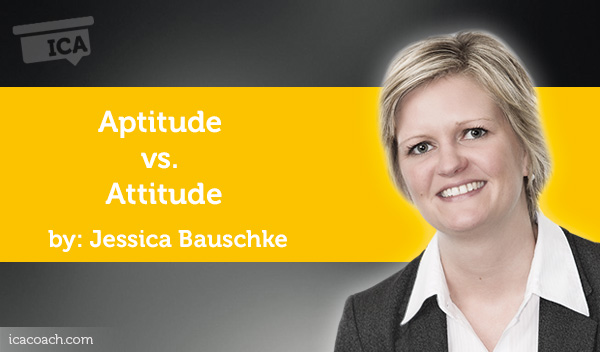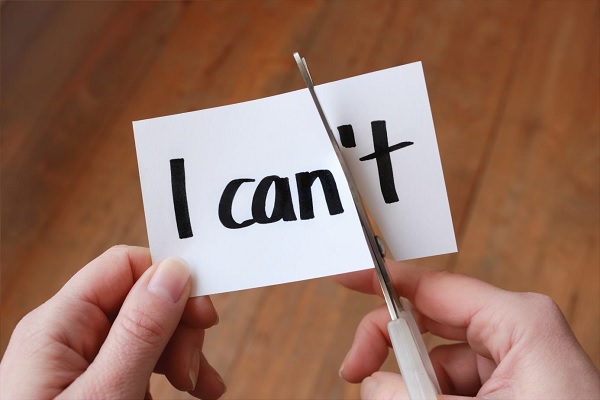
A Coaching Power Tool Created by Jessica Bauschke
(Transformational Coach, FRANCE)
Life is not a matter of holding good cards, but of playing a poor hand well. – Robert Louis Stevenson, Scottish writer

Emma was speechless. She had just been handed back her math test and could not believe what she saw. She expected a very good result as usual, but instead, this time she did rather poorly. How could that have happened? She, Emma, had a natural aptitude for mathematics after all, and she never had to study for a math test until now.
She turned to Fiona sitting next to her, to see how she did in the test. Fiona was not that talented in mathematics, and normally her grades had always been rather mediocre. But not this time. Fiona smiled and proudly announced to Emma her best grade ever. She had answered all questions in this test correctly.
Emma was even more perplexed. Just in this moment, Mr. Fisher, their math teacher came over to them and told Emma:
I know from our last conversation that you always count on your talent when it comes to maths, but there is a saying that hard work beats talent when talent doesn’t work hard. Fiona knew that she had to make efforts to get better in math, and so she recently took additional private lessons, worked and practiced very hard to get better grades in this subject.
Fiona’s attitude helped her to improve her skills and have the desired successful outcome.
The motivational speaker and author Zig Ziglar says that
Your attitude, not your aptitude, will determine your altitude.
So, if you have the right attitude, you will fly higher, reach higher outcomes, be better at what you do, than if you just had your aptitude. Let’s have a look at the two concepts.
Aptitude
The Merriam-Webster dictionary defines Aptitude as an “inclination, a tendency, or a natural ability, i.e. talent”. It also defines Aptitude as “capacity for learning”. Aptitude is a certain type of Intelligence, but while Intelligence is more about mental ability in general, aptitude has a narrower scope as it refers to a more specific ability in one area or a brain’s inborn potential relevant to performing a specific task.
Attitude The Businessdirectory.com defined Attitude as “A predisposition or a tendency to respond positively or negatively towards a certain idea, object, person, or situation. Attitude influences an individual’s choice of action, and responses to challenges, incentives, and rewards (together called stimuli).
Four major components of attitude are:
- Affective: emotions or feelings.
- Cognitive: belief or opinions held consciously.
- Conative: inclination for action.
- Evaluative: positive or negative response to stimuli.
According to Psychologist Carol Dweck, people’s core attitudes fall into one of two categories: a fixed mindset or a growth mindset.
Aptitude and Attitude as predictors of success
Many people may think that an innate outstanding aptitude is the key to success in a certain area or task. However, research has found out something else. While it is true that aptitude is one element of competence which is one of the keys to success, and to have it most certainly helps, there is an even bigger predictor of and contributor to success: Attitude.
A person’s attitude derives from the persons mindset. This can be a fixed mindset or a growth mindset.
A person with a fixed mindset does not believe in and cannot handle change. He/she makes sure that things continue in the same way to avoid overwhelm.
A person with a growth mindset believes that improvement is possible. He/she welcomes challenges and sees them as an opportunity to learn and to grow. Also, he/she puts in a lot of effort and does not give up at any setback.
Success can have many different meanings under different circumstances for different people. Each person has their own personal idea of what success means for him or her.
In general, having an attitude that derives from a growth mindset, a person is likely to reach higher levels of achievement and is therefore in that sense more successful.
Improving your Attitude
The good news is that attitude can be changed. Already in the 19th century, American philosopher and author William James stated:
The greatest discovery of my generation is that a human being can alter his life by altering his attitudes.
The bad news is that a sustained attitude change requires internal work. Hard work. It will not be easy, but it can be done. But isn’t it empowering to know that we do have the choice to go ahead and do the work?
Coaching Application
To improve our attitude, areas to look at are our belief system, our language that we use, our peer groups that we are interacting with. Coaching can support us on this journey.
But: We must want to improve or change our attitude, and we must make the choice to do so ourselves.
Simply to be told by someone else to improve or change our attitudes does not work.
Also, in the case that our attitude actually is the issue, and that it is standing in our own way, we may not know it right away and may not be aware of it. We may feel that something does not go as it should and we are not able be our best self, but we don’t really know why.
Coaching gets people to look at themselves in their situation, and to become aware of what may stand in their own way. And it can help to discover and explore, apply, and maintain the desired attitude that is needed for what a person wants to achieve.
However, the coach acts as a facilitator in the client’s journey of learning. The client must get to his awareness and learnings resulting from his own work.
Questions the coach might ask:
Conclusion
Aptitude is one component of competence and therefore good to have. But aptitude alone will only bring you so far.
What counts even more is to have the right attitude that moves you forward and helps you to achieve your goals. You can improve or change your attitude if it does not currently benefit you, but you must really want it and make the choice to work on it.
With powerful questions, techniques and optional exercises, coaching can help make you aware of your attitude, and can support you in your journey and in achieving your dreams and goals.

References
https://www.merriam-webster.com/dictionary/aptitude, viewed on 23/04/2018
https://www.researchgate.net/post/Is_aptitude_and_intelligence_the_same_things, viewed on 25/04/2018
https://en.wikipedia.org/wiki/Aptitude, viewed on 25/04/2018
, viewed on 23/04/2018
https://www.weforum.org/agenda/2017/08/heres-why-your-attitude-is-more-important-than-your-intelligence/, viewed on 24/04/2018
http://www.salesprogress.com/coaching-leadership/bid/104102/Coaching-Tips-to-Change-Attitudes-and-Behaviors, viewed on 22/05/2018
http://www.salesprogress.com/coaching-leadership/bid/102065/Attitudes-Can-Change-With-Coaching, viewed on 22/05/2018
https://blog.iqmatrix.com/limiting-beliefs, viewed on 28/05/2018